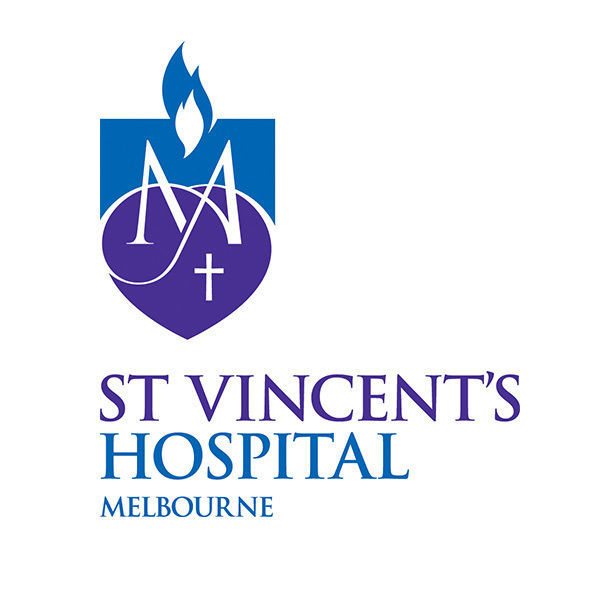Advancing health for a changing world
The University of Melbourne’s industry-led, research-informed, transformative education prepares students from all backgrounds to make a difference to community health and wellbeing by advancing the most important health challenges of a changing world.
Join us in the world-leading Melbourne Biomedical Precinct, and together, we’ll advance the best possible care for everyone.
#1
university in Australia
*Times Higher Education 2026 World University Rankings
#8
university worldwide for graduate employability
*QS Graduate Employability Rankings 2025
#20
university worldwide for Medical and Health
*Times Higher Education 2025 World University Rankings
900+
organisations inform our education experience and placements, including: hospitals, medical research institutes and other health and industry organisations.
Why study health at Melbourne?
- Gain a future-focused education that addresses global health challenges, from climate change to chronic illness, digital innovations, and mental health.
- Be immersed in the Faculty’s Advancing Health 2030 vision and its nationally-significant initiatives that are changing health, including: : Australian Institute for Infectious Disease, Aikenhead Centre for Medical Discovery, Victorian Collaborative Centre for Mental Health and Wellbeing, Healthcare Carbon Lab, and many more.
- Develop future-ready skills through our Collaborative Practice Centre curriculum, the only of its kind in Australia. We will teach you how to work with other health professionals in our healthcare system to get to the heart of a person’s illness and provide person-centered care and improved health outcomes.
- Study more than 150 courses on offer, from entry to practice degrees and continuing professional development study pathways across medicine, biomedical research, and allied health professions – we’ve got you covered for lifelong learning that incorporates the latest understanding.
- The Melbourne Curriculum is distinct in Australia but aligned to with leading universities in Europe and North America such as Harvard and Oxford University. It allows you to create your own path, and explore many options along the way.
- Learn more about the Faculty and its history and eminence in advancing the most important health challenges of a changing world.
- Learn at Australia's most consistently top ranked research university* and top 40 globally ranked university (Times Higher Education rankings). We have over 400 research industry partnerships and global research strengths in child and maternal health, cancer, infection and immunity, mental health and neuroscience, and cardiometabolic health, among others.
- Benefit from courses informed by the latest research and understanding in areas such as pandemic preparedness, medical technology, and sustainability. The faculty has over 400 research industry partnerships across Australia and the globe, including: DentAlliance, Asialink – Asia Australia Mental Health, Public Health Foundation of India, and many more.
- Learn to position your ideas for real-world impact. Commercial translation of research into practical health outcomes at the university.
- Gain exposure to our university start-ups, including: Kali Healthcare, NIRGenie, Torch Recruit, Carbon Cybernetics, Biocurate, Ena Respiratory, Axelia Oncology among others. Notable impact highlights of the university include:
- Identifying the first gene implicated in the development of epilepsy
- The bionic ear
- World-first mapping of the immune-response to COVID-19 to develop vaccines
- And many more.
- Benefit from hundreds of specialist health education research groups that ensure well designed, evidence-informed courses and programs.
- Study within one of the world’s most concentrated and globally leading hubs of health knowledge, research and education at our Parkville campus. The precinct represents a growing hub of health knowledge, research and care for the Asia-Pacific region.
- Engage in placements at over 900 eminent health sites and diverse work-integrated learning opportunities to develop your professional skills. Our students complete a total of 1.5 million training hours across the faculty each year.
- Acquire the skills needed for industry. The university is ranked #8 in the world for graduate employability.
- Access cutting-edge facilities, including teaching clinics, museums, and state-of-the-art infrastructure.
- Enjoy education beyond the precinct too. The University’s has regional industry links with Goulburn Valley Health, Echuca Regional Health, Northeast Health Wangaratta, and Grampians Health Ballarat, among others.
- Join a diverse and inclusive community that fosters innovation through representation of over 150 nationalities on campus.
- Access mentorship opportunities, peer support programs, and dedicated student services to help you thrive academically and personally.
- Be part of a diverse alumni community of over 62,000 past students and engage in diverse discussions and panel events year-round to extend your network or hone your expertise.
- Benefit from our scholarships offered to increase access for students of all backgrounds. Access Melbourne and the Narrm Scholarships are programs designed to increase opportunities for talented students to gain their place at university.
- Joint over 26 registered health-related student social clubs to have fun and make lifelong friendships and connections.
- Engage with influential alumni networks and industry leaders who shape health policy and practice. Our leading expertise in research and health system design in Australia and the globe shape the future of health.
- Benefit from our industry-leading academics who hold leadership positions in hospitals and clinics while also performing leadership roles with health industry bodies, health industry organisations, and crucial Government advisory boards that shape health policy. This ensures your education is real-world led and valuable. Examples include: Dr. Mihiri Silva, Senior Lecturer Paediatric Dentistry; Prof. Elif Ekinci, Head of Department, Medicine; Dr. Dianne Crellin, Senior Lecturer Nursing.
- Learn from academics and leaders who are key advisers to Government on national policy and education, shaping the future of health. Recent examples include The Royal Commission into Mental Health and Wellbeing, The Royal Commission into Aged Care Quality and Safety.
Explore our study areas
Whether you’re looking to start your career in health, deepen your skillset or change career focus,
we have a course to suit your interests and schedule.
Psychology and mental health
Social work and gender-based violence
Cancer sciences and treatment
Climate change and health
Biomedical sciences and research
Clinical and surgical education
Physiotherapy and rehabilitation
Critical care and disaster management
Dentistry and oral health
Nursing
Biostatistics
Maternal and child health
Audiology and speech pathology
Medicine
Optometry and vision sciences
Melbourne Biomedical Precinct and regional industry partners and impact
The University of Melbourne is proud to be part of a thriving, innovative ecosystem of health services, research institutes, commercial organisations and community groups. Explore our partnerships across the Melbourne Biomedical Precinct, metropolitan Melbourne and regional Victoria – and learn about our impact.













